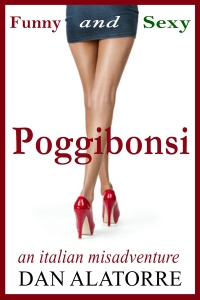
1. Start the story as late as possible
2. Have a grabber opening
3. Make the reader care, usually via the MC
4. What are the stakes? What can be gained or lost?
5. End with a cliffhanger so we go to chapter 2
Need more info? Let’s read on then, shall we?
(Learn more about writing better stories HERE)
.

Start the story as late as possible
Most authors bury the really interesting stuff a few paragraphs in, or worse, in chapter two or three. What’s the first interesting thing that happens in your story? Start there.
(Learn about tightening your story HERE)
.
Have a grabber opening

I like a “grabber” opening to a story and especially the opening chapter. Stories that hook a reader right away and keep the reader turning pages are stories that get read – and will receive comments like “I couldn’t put it down.” Of course, that’s not always possible, but do your best. Like I said, most authors bury the really interesting stuff a few paragraphs in. At least don’t do that.
(Learn about breaking down you epic saga HERE)
.

Make the reader care, usually via the MC
Because if readers don’t care… they don’t care. Do you intentionally do stuff – voluntarily – that you don’t want to do? Reading your book is not a job requirement. It’s supposed to be fun, a diversion.
.
.

What are the stakes? What can be gained or lost?
We know a story’s supposed to have conflict. A story were nothing bad happens is a DULL story, as in, nobody’s reading it. Put your character up a tree and throw rocks at them. Tension. Conflict. All that good stuff. But it starts in chapter 1 by letting the reader know what is at risk. You have sample chapters of Poggibonsi available on this website. Go read chapter one and tell me what’s at stake. Go ahead. I’ll wait.
.
.

End chapter ONE with a cliffhanger so we go to chapter TWO
Just about anything can be a cliffhanger of you do it right. Ask a question in chapter one that we have to go to chapter two to find the answer. Which we won’t do if we don’t care. Of course, that’s not always possible, but most authors should usually end their chapter a few lines or paragraphs before they actually end it. Instead, we resolve a question on OUR mind, and we stop – big mistake. Leave it for chapter two to resolve it, and readers have to read on.
(Find your story’s voice HERE)
There are more, but this is good to get started. And chapter ONE’s job is NOT to do everything!
What do YOU try to do in your first chapter?
.
Got a QUESTION? ASK IT! Send it as a comment to any post or hit the Contact Me button and, you know, contact me. I’ll see what I can do. (I have lots of smart friends, too.)
FOLLOW ME! I’m this helpful and funny all the time. Probably. Don’t miss another valuable bauble that falls from my fingertips. You read this far; you may actually need this stuff. SUBSCRIBE/FOLLOW TODAY (click the follow “Follow” button, above) and if you send me your email through the Contact Me button I’ll send you a free copy of my amazingly cute book “The Short Years” plus we’ll probably become friends and start hanging out and stuff.
If you benefit from this blog, share it with your friends!

Dan Alatorre is the author of several bestsellers and the hilarious upcoming novel “Poggibonsi: an italian misadventure” – yeah, we know. We tried to convince him to change that title. He’s sticking with it. Check out his other works HERE and check back often for interesting stuff.
25 replies on “5 Rules For Chapter One Of Your Book”
Reblogged this on suzanne rogerson fantasy author and commented:
It was interesting to have my novel in mind when I read through this blog. It’s great advice to focus on when editing that all important first chapter.
LikeLiked by 1 person
Thanks, Suzanne!
That pesky first chapter is often best addressed after finishing the story, when you know what all’s involved and have truly developed the novel’s voice.
LikeLiked by 1 person
[…] Source: 5 Rules For Chapter One Of Your Book […]
LikeLike
[…] Source: 5 Rules For Chapter One Of Your Book | Dan Alatorre – AUTHOR […]
LikeLiked by 1 person
Awesome! Thanks, Angie!
LikeLike
Reblogged this on Houda becoming author.
LikeLiked by 1 person
Also awesome. Thanks MissDoudy
LikeLiked by 1 person
Thank you for this great article, Actually, not starting in the moment of action, happens to me all the time I start the story somewhere so far from the action then I stop and ask why I’m writing all of this. that the time when I know i should probably discard all this writing. but that help me to understand more the story and to know exactly where the story should start. thank you again 🙂
LikeLiked by 1 person
It happens. Freaking Allison read my new YA and was like, nice chapter one. I think you should cut it and just open with chapter 2.
Aaaaaauuuuuuuugh!!!
Must… kill… my darlings…
LikeLiked by 1 person
Thanks another useful article, I really need to say something different in my comments on your blog.
Do you fancy taking a quick look at my first chapter? It’s very much a work in progress but any tips are always helpful. Don’t worry if you are too busy I shall not be offended.
LikeLiked by 1 person
You don’t have to be original in every comment. I’m not. Sometimes I feel guilty about saying “Great article. Thanks for sharing!” But sometimes that’s the best I can do. I’m busy and I read the blog post, here’s a nice but short comment. It’s okay. It’s better that’s no comment at all – and a LOT of my posts have never received a comment. They’re lonely. They’d have liked that comment..
LikeLiked by 1 person
Eric, I see that you’ve changed your image icon from a nice guy in a suit to a man throwing knives. That is disconcerting as you ask me to critique your chapter. However, I REMAIN UNINTIMIDATED and until the internet facilitates stabbings via coaxial cable, I shall move forward undaunted.
HERE IT IS.
Okay, actually I didn’t do the whole chapter. I read it, then I mostly focused on your opening and made some suggestions that will apply to the rest. A lot of the comments would repeat. Read and apply, young squire.
The chapter overall is good! The pace is good and the characters are interesting. Well done. The things I’d do to tell a story will be different from what you’d do – or anybody else looking at the chapter. 10 critiques = 10 sets f suggestions. Of course mine would be the BEST suggestions, but you have to pick and choose what feels right to you. That doesn’t make one right and another one wrong, It means this is what I prefer and what I think readers are most easily engaged by.
Finally, I wouldn’t go back and attack chapter 1 until your WHOLE story is finished, so you have a full understanding of what all happens in the story and have a complete grasp of the story’s voice. That said, I do it all the time so govern yourself accordingly.
And now, without further ado… you chapter – oops, again just your opening with some suggestions and examples after that.
YOUR OPENING PARAGRAPH
Tybalt peeked out from behind the crates his green eyes hungrily searching for a mark. His stomach growled he hadn’t eaten anything for three days and pain was becoming unbearable, but it was not as bad as the pain of losing his friend and protector Will. The cities watch’s crack down on pickpockets had left five of his friend dangling from the gallows and the streets safer than they had been for a long time. Will had been caught three days ago trying to snag a purse from a merchant, three members of the Watch had been lying in wait, he hadn’t stood a chance, they dragged him off to the square and strung him up, there was no trial, no one spoke up for him. Tybalt still felt anger towards Will, the older boy had made him stay behind, and if he had been there he might have saved him. Tybalt knew their chances on the street weren’t good but his fragile existence hadn’t robbed him of his childish belief in his immortality until he saw Will die. He had fled to the sewers grief stricken and scared he had hidden. But now hunger had driven him out.
MY COMMENTS
Let’s find the most interesting thing in the first few paragraphs and see about opening with that.
But now hunger had driven him out.
This is good
The cities watch’s crack down on pickpockets had left five of his friend dangling from the gallows and the streets safer than they had been for a long time.
This is long winded but it is pretty good
Here’s why I don’t love your opening line:
I don’t know who the guy is
I don’t care that he has green eyes
It’s a rookie mistake to say his eyes do something hungrily
Adverbs are not super strong most of the time so hungrily eyes doesn’t work for me
However:
A guy hiding for three days while his friends’ corpses dangle from ropes – that grabs me. Don’t bury that, open with it.
So let’s see about taking the two most interesting line and doing a good opener with them.
It had been three days since…
Nah
After three days of hunger drove Tybalt out from hiding and into the light of day where his friends corpses hung drying in the middy sun.
Or
On the third day, Tybalt succumbed to his hunger and came out from hiding, walking into the street where the corpses of his five friends dangling from the gallows.
You get the idea.
Now… day three isn’t as interesting as the corpses, is it?
The stench of rotting flesh was not enough to subjugate Tybalt’s hunger after three days – even if it was the corpses of his five friends dangling from the gallows that caused the smell.
Then we probably want a better word for smell. Odor? Why not.
The stench of rotting flesh was not enough to subjugate Tybalt’s hunger after three days – even if it was the corpses of his five friends dangling from the gallows that caused the odor.
That, my friend, is an interesting way to open a chapter and a story. But while it may or may not be my way, you need to do it in a way that is your way. Be gripping and interesting, but your own voice.
Subjugate? Meh. And the new opener kind of long – but it’s interesting.
Say what I said in YOUR words. Be brief and fast, but give us the reader what we need. There may even be a better opening further down the line.
The rest of the chapter is pretty good, but you’re narrating a lot of action. That makes it hard to show and not tell, but you did a decent job. I’d break up the paragraphs smaller, one thought per paragraph, one idea per sentence (even though we didn’t do that in the opener.)
Different countries use single quotes when we Americans use double quotes, so that’s different and I won’t comment further on it.
These are dialog tags:
‘Calm down boy,’ the man said softly ‘I’m not going to hurt you’
‘You haven’t brought the watch?’ asked Tybalt fearfully.
He said, she said, etc. So little phrases like “he said” are to be eliminated when possible, especially descritive tags like “fearfully” – a tag and adverb combination. What I do is, I write what I want, and then I go back and look for all the she said or he said stuff, and just replace it with some small action. Like a game. A few tags aren’t a big deal. The point is, nobody sits around JUST talking, they do little actions make them more alive – scratch their nose, cross their legs (you’ve seen my blog posts about that stuff by now) – and those things help craft a better story. You delete needless words and enhance your story and characters through actions, a win-win-win. So it can be this way
“You gonna go back home?” I asked him.
or
I looked over at him. “You gonna go back home?”
or
I glanced down the street. “You gonna go back home?”
So you’ll want to take out the tags where you can and add in beats – little actions – if you can.
the man said softly = he lowered his voice
asked Tybalt fearfully – what physical things does Tybalt do to SHOW the other person (and us the reader) he is afraid? Describe that, briefly. Maybe he puts his hands to his mouth, or his knees knock or he rubs his neck. That shows us without telling us, drawing us into immersion into your story.
FURTHER DOWN THE CHAPTER
‘So you’re a wizard!’ Exclaimed Tybalt he had been looking for a real wizard for so long he felt his fear turn to excitement finally he would get answers to his question. Life on the street had taught him to be cautions he need to know what this wizard wanted even though he was now aching with longing.
‘Yes of course I am, answer my question!’
‘But how did you find me?’ asked Tybalt all thought of trying to escape gone.
‘I put a tracking spell on my purse just in case, now answer my question!’
That is convenient. He needed a wizard and one appeared. In fact, the wizard was tracking him.
No. Put your characters up a tree and throw rocks at them. The conflict, the obstacles in the way of the main character, is the story.
You get the idea.
SHOW me what’s happening from there. But you’re off to a great start! Good job!
(LASTLY, I didn’t have a way to do this without doing it this way, so I did it – but it’s not meant to embarrass you. If it does, let me know and I’ll take it down.)
LikeLiked by 1 person
Not at all embarrassing. First off thank you for taking the time I didn’t expect this detailed an approach. I know it is not anywhere near ready I posted it to get some other perspectives. Plus being a newbie, despite endless reading of writing advice, I know I had probably made lots of mistakes but some times it’s hard to see the wood from the trees. I shall file your comments with the others and use them when I get to the editing stage. Thanks again I really appreciate it.
LikeLiked by 2 people
I’m not throwing knifes but getting a lesson in wand technique with youngest son at the making of Harry Potter!
LikeLiked by 2 people
These are great pieces of advice, and the reasoning behind why I cut my first three chapters. Thank you for sharing!
LikeLiked by 1 person
Wait a minute… YOU CUT THE FIRST THREE CHAPTERS???
LikeLiked by 1 person
Oh, wait; I told you to do that. Nevermind.
LikeLiked by 1 person
Lol
LikeLiked by 1 person
It’s like you read my mind. (You can’t, can you?) I made these same points in conversation had last night. Of course knowing them is easier than doing them… I think I need to go back and re-read my first chapter. I remember it at least has a cliffhanger ending.
LikeLiked by 1 person
Of course I read minds – I’m writing 3rd person omniscient
LikeLiked by 2 people
Hahahahaha. THAT’s a meme.
LikeLiked by 1 person
Great advice Dan. And loving your newest book; feels like an entertaining read in true Dan style! 🙂
LikeLiked by 1 person
It’s a lot of fun, that’s for sure!
LikeLike
Great advice. My first draft is finished but this definitely helped me improve my first chapter. I’m new to your blog but happy I found it.
LikeLiked by 1 person
Welcome aboard.
LikeLike